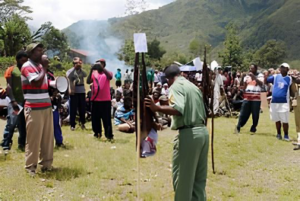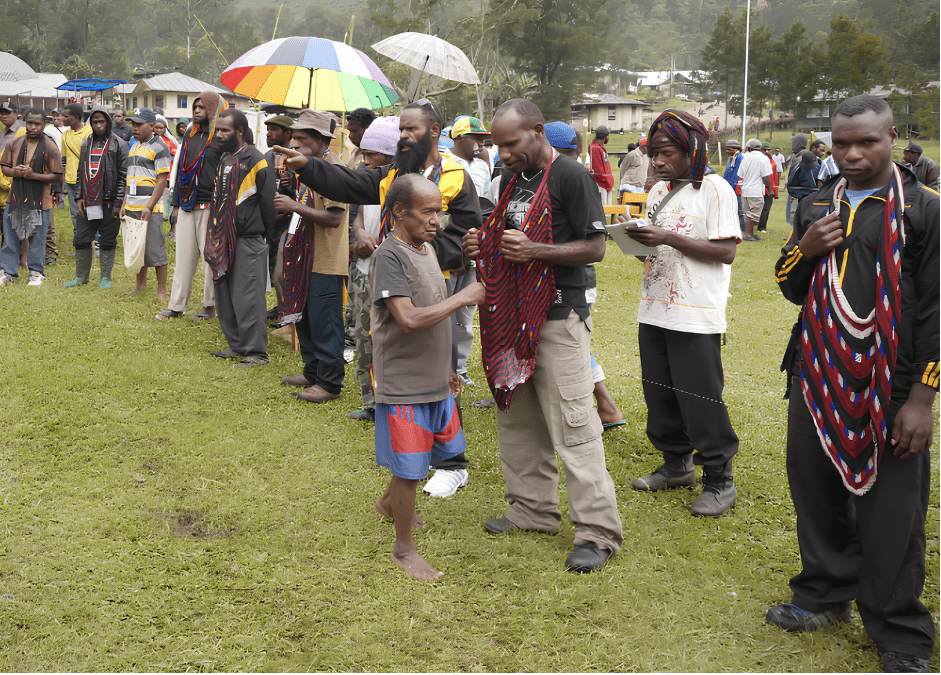PAPUA – Noken is a traditional bag made of bark fiber used by Papuan mountain communities. Noken is used as an election system in Papuan society. This noken election system is different from the general election system commonly used in Indonesia, in the noken election system the community gathers to deliberate and determine their choices openly, in the noken election system everyone has the same opportunity to vote and there are no votes that are greater or smaller, and no one can impose their votes on others.
The noken system has a close relationship with political anthropology, the noken system is part of the Traditional Political system of Papuan mountain communities, noken is used in various traditional ceremonies, including the election of community leaders, in the election of Leaders, noken is used to collect votes from the community, the noken election system illustrates how Papuan communities organize themselves and this system is democratic and egalitarian, because everyone has the same opportunity to participate.
The noken election system also illustrates how Papuans uphold the values of equality, togetherness, and solidarity, these values are reflected in the way they deliberate and determine their choices, from an anthropological perspective the theory of deliberation in the noken election system can be studied from the concept of Customary Leadership. Customary leadership in Papua is leadership that is oriented towards the interests of the community and customary leaders must be able to represent the aspirations and interests of their community. In the noken election system, customary leaders are chosen based on their ability to lead and nurture the community. The chosen customary leader must be able to unite the community and bring prosperity to them.

The formation of the noken election system is because the Papuan people are a society that still upholds its traditional customs, in Papuan customs, important decisions, including decisions on the election of leaders, are taken by deliberation and consensus and the noken system reflects the values of democracy and consensus embraced by the Papuan people. In the noken system, the voice of the community is represented by a traditional leader, who then conveys the voice to the prospective leaders, and in more detail there are two types of noken systems used in elections in Papua, namely:
- Noken Big Man, in the Noken Big Man system, the voice of the community is represented by a big man or tribal chief. The big man will convey the voice of the community to the prospective leaders and this system is more often used in areas that still have a traditional system of government.
- Noken Gantung, In the Noken Gantung system the ballots are hung in noken and carried by the community to the counting place, the ballots are then counted and the community’s votes are counted based on the number of ballots in the noken, this system is more often used in areas that already have a Modern Government system.
The noken system has become part of the culture of the Papuan people and has been recognized by the Constitutional Court as part of local customs guaranteed by the 1945 Constitution, but it has also generated some controversy, such as accusations that it is undemocratic and violates human rights. The noken system is a unique and interesting system and it illustrates how Papuans organize themselves and uphold the values of Democracy, Egalitarianism, Deliberation, and Solidarity.


